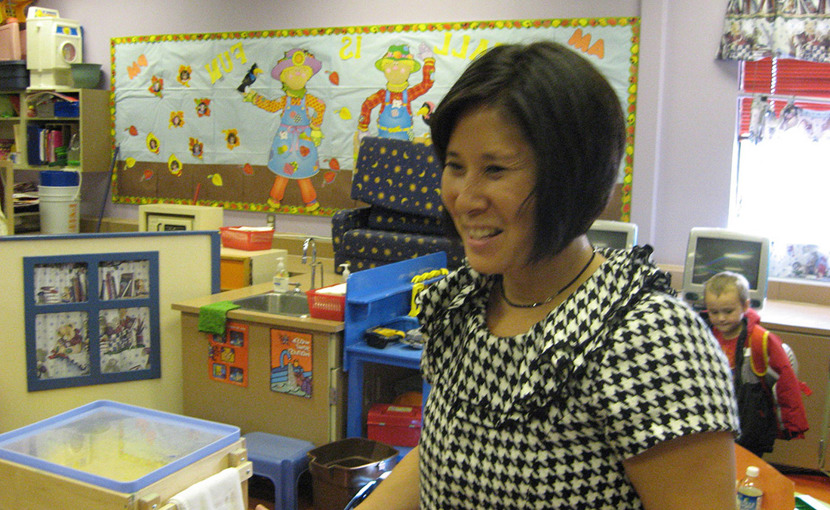Early childhood educators plan, implement, and reflect upon materials, experiences, and environments for children. They strive to meet the social, physical, intellectual, creative, cultural, emotional, and developmental needs and interests of all children, including children with special needs. They encourage play-based learning rooted in children’s interests and foster their desire to learn. They establish routines and guidance for positive behaviour that:
- Allows children to feel secure, comfortable, and safe
- Builds children’s social and interpersonal skills and positive self-concept
- Encourages co-learning, co-seeking, and problem-solving skills
- Helps to establish the child’s self-image as a strong, capable citizen
They also:
- Document their observations of the children, and share them with the children and their families
- Establish and maintain professional communication with children’s families and community agencies involved in children’s development
Early learning and care programs are based on Alberta’s Early Learning and Care framework. The framework accounts for children’s interests and learning needs. Its goals relate to children’s emotional, intellectual, and physical well-being. It’s also meant to promote literacy, imagination, creativity, and social responsibility. Programs make use of individual, small- and large-group activities, indoor and outdoor play, and outings. Activities, which vary throughout the program, are chosen to accommodate each child’s unique abilities. A typical day’s schedule might include:
- Arrival and departure
- Play experiences in various areas, such as music, dramatic play, art, science, and literacy
- Snacks and meals
- Quiet rest time or nap time
- Outdoor play
- A special guest, event, or excursion
- Communicating with children’s families
- Observing, documenting, and expanding on children’s learning experiences
A well-designed learning environment for infants, toddlers, and preschoolers makes learning tangible through play. It includes ways to develop physical, emotional, creative, social, and intellectual skills through play, materials, routines, and interactions with other children and adults.
Activities at out-of-school care programs reflect the interests of the children and meet the unique needs of children aged 6 to 12. The role of out-of-school educators is to provide a safe, secure, relaxing, and fun place for children to go, outside of school hours.



